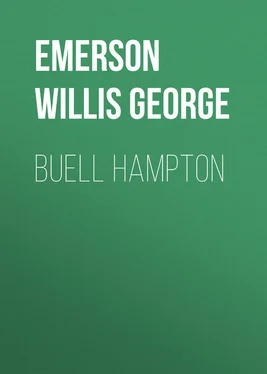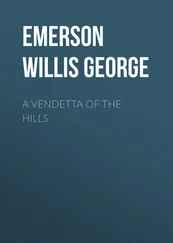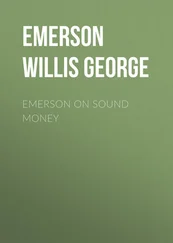Willis Emerson - Buell Hampton
Здесь есть возможность читать онлайн «Willis Emerson - Buell Hampton» — ознакомительный отрывок электронной книги совершенно бесплатно, а после прочтения отрывка купить полную версию. В некоторых случаях можно слушать аудио, скачать через торрент в формате fb2 и присутствует краткое содержание. Жанр: foreign_antique, foreign_prose, на английском языке. Описание произведения, (предисловие) а так же отзывы посетителей доступны на портале библиотеки ЛибКат.
- Название:Buell Hampton
- Автор:
- Жанр:
- Год:неизвестен
- ISBN:нет данных
- Рейтинг книги:5 / 5. Голосов: 1
-
Избранное:Добавить в избранное
- Отзывы:
-
Ваша оценка:
- 100
- 1
- 2
- 3
- 4
- 5
Buell Hampton: краткое содержание, описание и аннотация
Предлагаем к чтению аннотацию, описание, краткое содержание или предисловие (зависит от того, что написал сам автор книги «Buell Hampton»). Если вы не нашли необходимую информацию о книге — напишите в комментариях, мы постараемся отыскать её.
Buell Hampton — читать онлайн ознакомительный отрывок
Ниже представлен текст книги, разбитый по страницам. Система сохранения места последней прочитанной страницы, позволяет с удобством читать онлайн бесплатно книгу «Buell Hampton», без необходимости каждый раз заново искать на чём Вы остановились. Поставьте закладку, и сможете в любой момент перейти на страницу, на которой закончили чтение.
Интервал:
Закладка:
“That may be your position to-night,” said Mrs. Osborn, “but what will it be to-morrow or next week or next month? Ah, I know you men too well to believe in your platonic friendships. A woman may successfully maintain such a feeling, – a man, never.”
Hugh made no reply, and for awhile they drove on in silence. As they alighted from the carriage at the Osborn door, she laid a hand on Hugh’s arm, and, bending toward him, she asked, in a soft, pleading voice:
“What would you give – what would you do for a friend who would tell you how to supplant Doctor Lenox Avondale?”
Hugh drew himself away in surprise and answered, “Nothing, Mrs. Osborn, absolutely, nothing. If the Englishman is Miss Ethel’s choice, then he is my choice.”
The intense and passionate expression on her face gave way to an assumed one of listless drollery, and she smiled. “How charming – what a valiant knight you are. I admire such men, I do indeed. Of course you know I was only jesting, for I assure you no one could supplant Doctor Lenox Avondale. He is quite secure – quite secure indeed.”
CHAPTER XI. – DADDY’. CONSENT
ETHEL HORTON remained on the veranda watching Mrs. Osborn’s carriage as it disappeared in the gathering darkness. Her mother complained of fatigue and retired to her room. In reply to an inquiry from her father, Ethel said:
“Oh, yes, daddy, I like Mr. Stanton very much. He is quite interesting. I think your tastes and mine are much alike anyway, don’t you?”
“I think they are,” replied the cattle king, gallantly, “although it is a compliment to me, rather than to you, my little girl.”
Ethel laughed. “I say, daddy, you can make as fine speeches as any of them. I don’t think you are a bit stupid,” and the girl crossed over to her father and, nestling up close to him, was soon seated on his knee.
“This is something like old times,” said her father, as he clasped her closer to him. The moon was climbing over the eastern horizon, causing the waters of the little lake below to appear like a sheet of silver, while the rough edges of the rippling waves were as golden as the sunflowers that grew at the margin. It was an hour for girlish confidences, and one that Ethel determined to improve.
“Did you ever think,” inquired her father, teasingly, “that I was especially stupid?”
“No, daddy, I really never did; but, do you know, in England they boast a great deal, in quiet ways, about Englishmen, and all that sort of thing, and if you are an American they make you feel fidgety, as if having been born in America were a calamity.”
“That’s all nonsense,” replied her father, “don’t let your little head be turned by that sort of rubbish. To be an American, Ethel, in my mind, is a greater good fortune than to have been born a member of the most distinguished of England’s titled aristocracy. Understand me, daughter,” he continued, “the English are a great nation, but titles, of which some boast so much, had a beginning, and the conditions that surrounded their forefathers, and gave them an opportunity to do deeds of valor, are also here in America, developing the sterling qualities of manhood in their highest perfection.”
“Bravo!” cried Ethel. “That’s good, daddy; it makes my American blood just tingle. It’s better than a feast to hear you talk. I wish,” she continued, half petulantly, “I had never gone away to that London school.”
“No, Ethel,” replied her father, as he gently stroked her heavy, dark tresses, “no, you must not say that. It was your mother’s best judgement that you should go; and her ideas and tastes are of a very high order. I have been lonely during the four years of your absence. But life again seems complete now that you are at home.”
“Do you believe, daddy, that the best class of Americans care for titles, royalty, or anything of that sort?”
“My dear child, many wearers of English titles nowadays are but twaddling idlers – frayed remnants of a former illustrious ancestry. Whatever other views you may entertain, never believe that there is anything in a mere title. True manliness tells; and titled or not, a man is a man if he possess the sterling qualities of manhood. I would not disparage any man simply because he bore a title, neither would I give him a hair’s-breadth of preference. This, my little girl, is a plain statement of your old father’s views.”
Ethel nestled still closer to him, and with her head resting against his breast remained silent for awhile. He fancied she shivered a little, as if a sob were struggling for mastery. Presently she said, with a slight tremor, “I want to talk to you, daddy; I want to tell you something no one else knows. Do you think, daddy, if some great English lord should come over here for me that you would give me up to him, and let me be carried back to England and, perhaps, never see you again?”
“Why, Ethel, my darling child,” replied her father, hesitatingly, “I presume that if your heart were set upon it, I would give my consent. Your mother has intimated what we might expect, but it will be a great trial to me, Ethel.”
“Oh, mamma has intimated, has she?” mused Ethel, half to herself. “Listen, daddy – what if a brain-worker, a real American brain-worker, should want – want me – you know, and I should care for him – for this poor brain-worker – care more for him than for all the money in the Bank of England and the titles of all the nobility thrown in – what then, daddy? What then would you do? Would you be on my side, or against me? Tell me, daddy, dear, how would it be?”
The girl’s breath came short and quick, and the last part of her question was uttered in a rapid, jerky fashion. John Horton felt her tremble with suppressed excitement, and a light began to dawn upon him. He imagined, and rightly, that the girl was half-afraid of her mother.
“In such a case as that, Ethel, can you doubt the stand I would take?”
“No, but let me hear you say it, daddy; let me hear you say it – just what you would do.”
“On your side, my daughter, on your side forever, and we would fight to a finish on that line, if it took all the beeves and mavericks on the range.”
“Oh, daddy, daddy,” cried the girl, as she threw her other arm around his neck and gave way to a flood of tears, “I – I love you so – so much!”
Tears sprang to the cattle king’s eyes. Ethel’s soft sobs stole out along the veranda into the calm moonlight and away on the shadows into the woods where they lost themselves among the tall trees and on the wandering night winds. When she reached her own room that night, she wrote a letter to Jack Redfield, which read as follows:
“Dearest Jack: – Daddy is on our side. I am almost too happy to write. I know now what that feeling was, – love, Jack, love for you. Come and see me as soon as you can, and meet the grandest daddy in the whole world. Yes, I love you, love you, love you.
“All your own, “Ethel.”Mrs. Lyman Osborn called the next day, and in her neighborly kindness she consented to carry this letter, with others, from the Horton ranch to the post-office.
On the following day Mrs. J. Bruce-Horton called at the Osborn home.
“My dear Lucy,” said she, sinking into a chair in Mrs. Osborn’s exquisite boudoir, “I felt that I must see you. You attended to the letter properly, I suppose?”
“Trust me for that, my dear Mrs. Horton,” replied Mrs. Osborn, meaningly.
“How good of you,” murmured Mrs. Horton. “I really could not hope to get on at all in this matter if it were not for you.”
“You see my fears in regard to Doctor Redfield were well founded,” replied Mrs. Osborn.
“Indeed, I realize it,” said Mrs. Horton, emphatically, “and now we are confronted by this Mr. Stanton. My husband is really quite charmed with him. I don’t see why Doctor Avondale is so dilatory about coming. I certainly wish he would hasten.”
Читать дальшеИнтервал:
Закладка:
Похожие книги на «Buell Hampton»
Представляем Вашему вниманию похожие книги на «Buell Hampton» списком для выбора. Мы отобрали схожую по названию и смыслу литературу в надежде предоставить читателям больше вариантов отыскать новые, интересные, ещё непрочитанные произведения.
Обсуждение, отзывы о книге «Buell Hampton» и просто собственные мнения читателей. Оставьте ваши комментарии, напишите, что Вы думаете о произведении, его смысле или главных героях. Укажите что конкретно понравилось, а что нет, и почему Вы так считаете.












